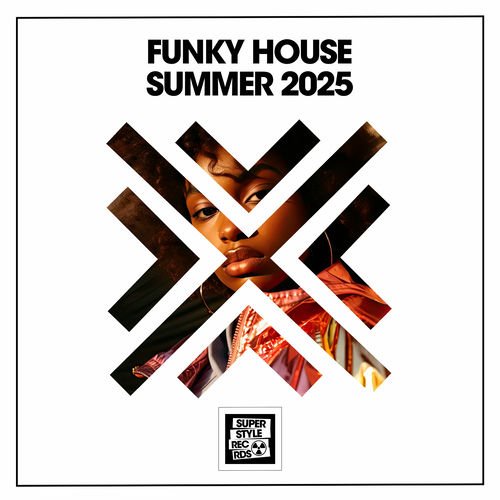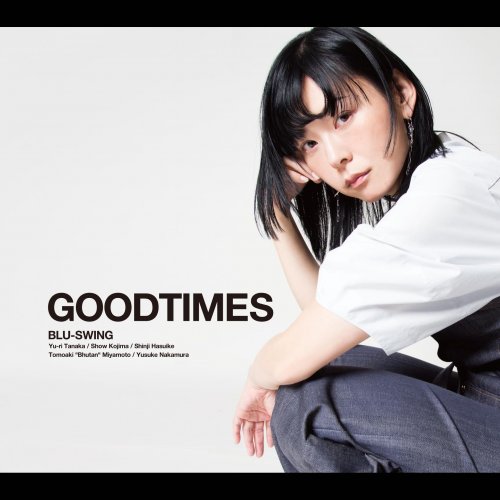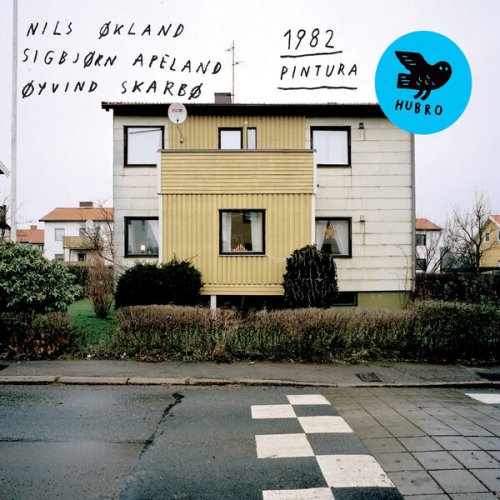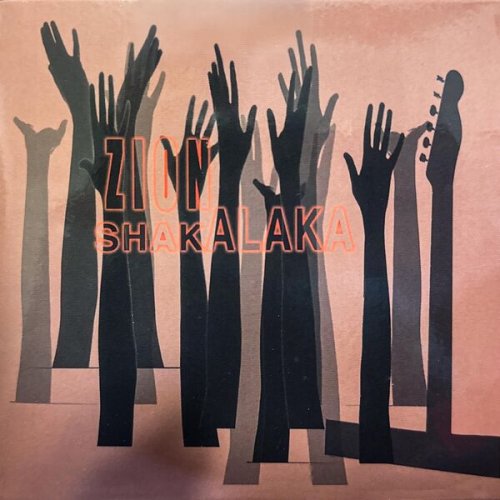Jan Bang - Reading the Air (2024) [Hi-Res]
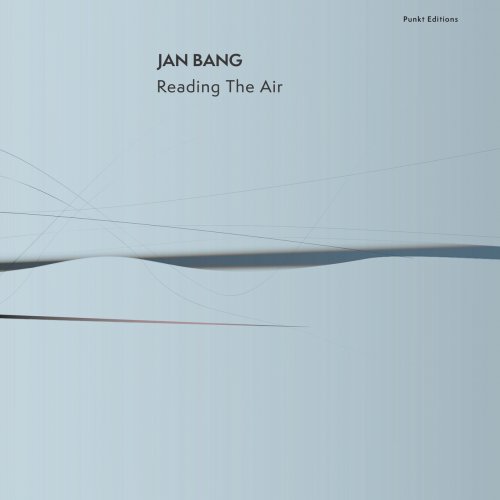
Artist: Jan Bang
Title: Reading the Air
Year Of Release: 2024
Label: PUNKT Editions
Genre: Electronic, Ambient, Jazz
Quality: Mp3 320 kbps / FLAC (tracks) / 24bit-44.1kHz FLAC (tracks)
Total Time: 40:50
Total Size: 94.5 / 190 / 397 MB
WebSite: Album Preview
Tracklist:Title: Reading the Air
Year Of Release: 2024
Label: PUNKT Editions
Genre: Electronic, Ambient, Jazz
Quality: Mp3 320 kbps / FLAC (tracks) / 24bit-44.1kHz FLAC (tracks)
Total Time: 40:50
Total Size: 94.5 / 190 / 397 MB
WebSite: Album Preview
1. Nameless (4:07)
2. Reading The Air (4:55)
3. Burgundy (3:15)
4. Food For The Journey (4:31)
5. Delia (4:48)
6. War Paint (4:17)
7. Winter Sings (5:45)
8. The Cards (4:01)
9. Cycle (2:59)
10. No Paradise Lost (2:15)
Composer/singer/musician Jan Bang is known for albums and live performances in collaboration with Jon Hassell, Sidsel Endresen, Tigran Hamasyan, Nils Petter Molvær, David Sylvian, Arve Henriksen, Eivind Aarset and Erik Honoré. After a string of instrumental releases and two song based albums with the collaborative project Dark Star Safari, «Reading the Air» is his first vocal based solo album since 1998.
The album’s lyrical, lingering compositions, built around Bang’s voice, keyboards and electronics, are enhanced by an accomplished team: Singers Anneli Drecker (Bel Canto, Röyksopp, a-ha), ECM artist Simin Tander and young talent Benedikte Kløw Askedalen, trumpeter Arve Henriksen, duduk player Canberk Ulaş, percussionist Adam Rudolph, guitarist Eivind Aarset, bassist Audun Erlien and drummer Anders Engen.
«Reading the Air» is co-produced and mixed by Jan Bang's long time musical partner and Punkt Festival co-founder Erik Honoré, who also contributed synthesizers and wrote the lyrics: Ambiguous meditations on transience and loss.
The album opens with «Nameless», a haunting, subdued lament originally written for Bugge Wesseltoft’s charity project for the Moria Refugee Camp in Greece. Anneli Drecker sings this story together with Jan Bang over a tense foundation provided by Eivind Aarset’s guitar, Anders Engen’s drums and Audun Erlien’s bass, embellished by Canberk Ulaş’ duduk tones and Erik Honoré’s atmospherics.
The title track follows, also telling a story of escape, of burned bridges and turned tables, centered around the phrase «Reading the Air» – a Japanese expression that can be translated to «sensing someone's feelings» or «interpreting the situation without words». The song is a subtle combination of pop and poetry, featuring Jan Bang’s long time friend and collaborator Arve Henriksen on trumpet.
«Burgundy» serves as a darker, more static counterpoint to the light, organic flow of «Reading the Air». Also here, the rhythm foundation is provided by bass player Audun Erlien and drummer Anders Engen, recorded together with Eivind Aarset’s guitar by engineer Johnny Skalleberg during the course of two sessions that took place five years apart, in 2014 and 2019. «Burgundy» also features Adam Rudolph on percussion, and Jan Bang’s multitracked voice conveys a cryptic tale of gender and conflict.
Both composer Bang and lyricist Honoré refer to «Food for the Journey» as the album’s centerpiece. This is also a tale of loss and migration, but now the departure is more concrete. Both through the title – a term traditionally associated with the last meal, the reception of the Eucharist – and the sirens’ chorus multitracked by Simin Tander.
The album's only cover song, «Delia» from Harry Belafonte’s 1954 album «Mark Twain and Other Folk Favorites», is written by Fred Brooks and Lester Judson. Also this song tells a story of loss and departure, and in Jan Bang’s arrangement, which is very different from Belafonte’s original, «Delia» becomes a slow, powerful torch song both celebrating and mourning love, performed by Bang together with singer Benedikte Kløw Askedalen.
Most of the album is organic and at times «live in the studio» sounding, but the synthesizer driven «War Paint» provides a metric contrast. The song is inspired by the very last exhibition by Norwegian sculptor and photographer Bård Breivik, where the artist’s face was decorated in ritualistic defiance to an illness that in the end proved impossible to defy. Also here, Simin Tander’s voice provides a warm counterpoint to Bang’s lead vocals, and Arve Henriksen contributes a fourth-worldly dimension.
«Winter Sings», like «Delia», features «nature-as-character», and a hint of nostalgia: Parts of the melody are borrowed from the very first recording that Jan Bang ever released, also that together with Erik Honoré – an EP with the quartet Woodlands. Again, Canberk Ulaş contributes his traditional duduk, an Armenian wind instrument made of apricot wood.
The open-ended murder ballad «The Cards», a duet with Benedikte Kløw Askedalen, leads into the psychedelic «Cycle» which features Jan Bang and Anneli Drecker as the main characters in a musical film noir, singing of a descent into a maelstrom auralized by Eivind Aarset’s guitars.
At the end of the closing piano/synth ballad «No Paradise Lost», we return to Asian metaphors, but this time slightly tongue-in-cheek: The «hungry ghosts» of the final verse are creatures from Eastern mythologies, driven by unfulfilled cravings as a punishment for previous misdeeds.
Bass – Audun Erlien
Drums, Banjo – Anders Engen
Duduk – Canberk Ulaş
Guitar, Electronics – Eivind Aarset
Percussion – Adam Rudolph
Synthesizer, Performer [Treatments], Voice – Erik Honoré
Trumpet – Arve Henriksen
Vocals – Simin Tander, Anneli Drecker, Benedikte Kløw Askedalen
Vocals, Piano, Organ, Synthesizer, Sampler [Samples] – Jan Bang
The album’s lyrical, lingering compositions, built around Bang’s voice, keyboards and electronics, are enhanced by an accomplished team: Singers Anneli Drecker (Bel Canto, Röyksopp, a-ha), ECM artist Simin Tander and young talent Benedikte Kløw Askedalen, trumpeter Arve Henriksen, duduk player Canberk Ulaş, percussionist Adam Rudolph, guitarist Eivind Aarset, bassist Audun Erlien and drummer Anders Engen.
«Reading the Air» is co-produced and mixed by Jan Bang's long time musical partner and Punkt Festival co-founder Erik Honoré, who also contributed synthesizers and wrote the lyrics: Ambiguous meditations on transience and loss.
The album opens with «Nameless», a haunting, subdued lament originally written for Bugge Wesseltoft’s charity project for the Moria Refugee Camp in Greece. Anneli Drecker sings this story together with Jan Bang over a tense foundation provided by Eivind Aarset’s guitar, Anders Engen’s drums and Audun Erlien’s bass, embellished by Canberk Ulaş’ duduk tones and Erik Honoré’s atmospherics.
The title track follows, also telling a story of escape, of burned bridges and turned tables, centered around the phrase «Reading the Air» – a Japanese expression that can be translated to «sensing someone's feelings» or «interpreting the situation without words». The song is a subtle combination of pop and poetry, featuring Jan Bang’s long time friend and collaborator Arve Henriksen on trumpet.
«Burgundy» serves as a darker, more static counterpoint to the light, organic flow of «Reading the Air». Also here, the rhythm foundation is provided by bass player Audun Erlien and drummer Anders Engen, recorded together with Eivind Aarset’s guitar by engineer Johnny Skalleberg during the course of two sessions that took place five years apart, in 2014 and 2019. «Burgundy» also features Adam Rudolph on percussion, and Jan Bang’s multitracked voice conveys a cryptic tale of gender and conflict.
Both composer Bang and lyricist Honoré refer to «Food for the Journey» as the album’s centerpiece. This is also a tale of loss and migration, but now the departure is more concrete. Both through the title – a term traditionally associated with the last meal, the reception of the Eucharist – and the sirens’ chorus multitracked by Simin Tander.
The album's only cover song, «Delia» from Harry Belafonte’s 1954 album «Mark Twain and Other Folk Favorites», is written by Fred Brooks and Lester Judson. Also this song tells a story of loss and departure, and in Jan Bang’s arrangement, which is very different from Belafonte’s original, «Delia» becomes a slow, powerful torch song both celebrating and mourning love, performed by Bang together with singer Benedikte Kløw Askedalen.
Most of the album is organic and at times «live in the studio» sounding, but the synthesizer driven «War Paint» provides a metric contrast. The song is inspired by the very last exhibition by Norwegian sculptor and photographer Bård Breivik, where the artist’s face was decorated in ritualistic defiance to an illness that in the end proved impossible to defy. Also here, Simin Tander’s voice provides a warm counterpoint to Bang’s lead vocals, and Arve Henriksen contributes a fourth-worldly dimension.
«Winter Sings», like «Delia», features «nature-as-character», and a hint of nostalgia: Parts of the melody are borrowed from the very first recording that Jan Bang ever released, also that together with Erik Honoré – an EP with the quartet Woodlands. Again, Canberk Ulaş contributes his traditional duduk, an Armenian wind instrument made of apricot wood.
The open-ended murder ballad «The Cards», a duet with Benedikte Kløw Askedalen, leads into the psychedelic «Cycle» which features Jan Bang and Anneli Drecker as the main characters in a musical film noir, singing of a descent into a maelstrom auralized by Eivind Aarset’s guitars.
At the end of the closing piano/synth ballad «No Paradise Lost», we return to Asian metaphors, but this time slightly tongue-in-cheek: The «hungry ghosts» of the final verse are creatures from Eastern mythologies, driven by unfulfilled cravings as a punishment for previous misdeeds.
Bass – Audun Erlien
Drums, Banjo – Anders Engen
Duduk – Canberk Ulaş
Guitar, Electronics – Eivind Aarset
Percussion – Adam Rudolph
Synthesizer, Performer [Treatments], Voice – Erik Honoré
Trumpet – Arve Henriksen
Vocals – Simin Tander, Anneli Drecker, Benedikte Kløw Askedalen
Vocals, Piano, Organ, Synthesizer, Sampler [Samples] – Jan Bang
![Big Freedia - Pressing Onward (2025) [Hi-Res] Big Freedia - Pressing Onward (2025) [Hi-Res]](https://www.dibpic.com/uploads/posts/2025-08/1754677343_yv9a19ix3ft9a_600.jpg)
![Pawlo-X Sax - Smooth Jazz Summer 2025 (2025) [Hi-Res] Pawlo-X Sax - Smooth Jazz Summer 2025 (2025) [Hi-Res]](https://www.dibpic.com/uploads/posts/2025-08/1754986359_cover.jpg)
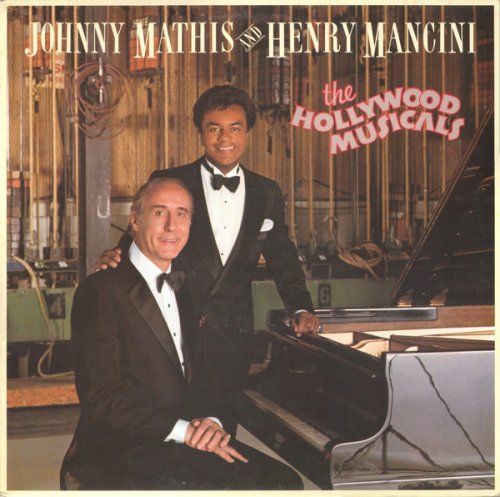
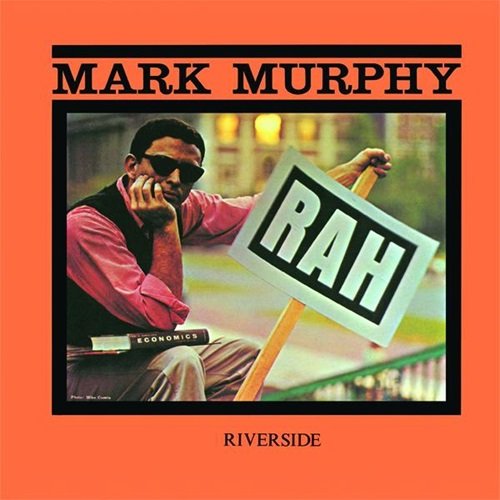
![Radical Polish Ansambl - nierozpoznana wieś (2024) [Hi-Res] Radical Polish Ansambl - nierozpoznana wieś (2024) [Hi-Res]](https://www.dibpic.com/uploads/posts/2025-08/1754842347_a0386011362_10.jpg)
